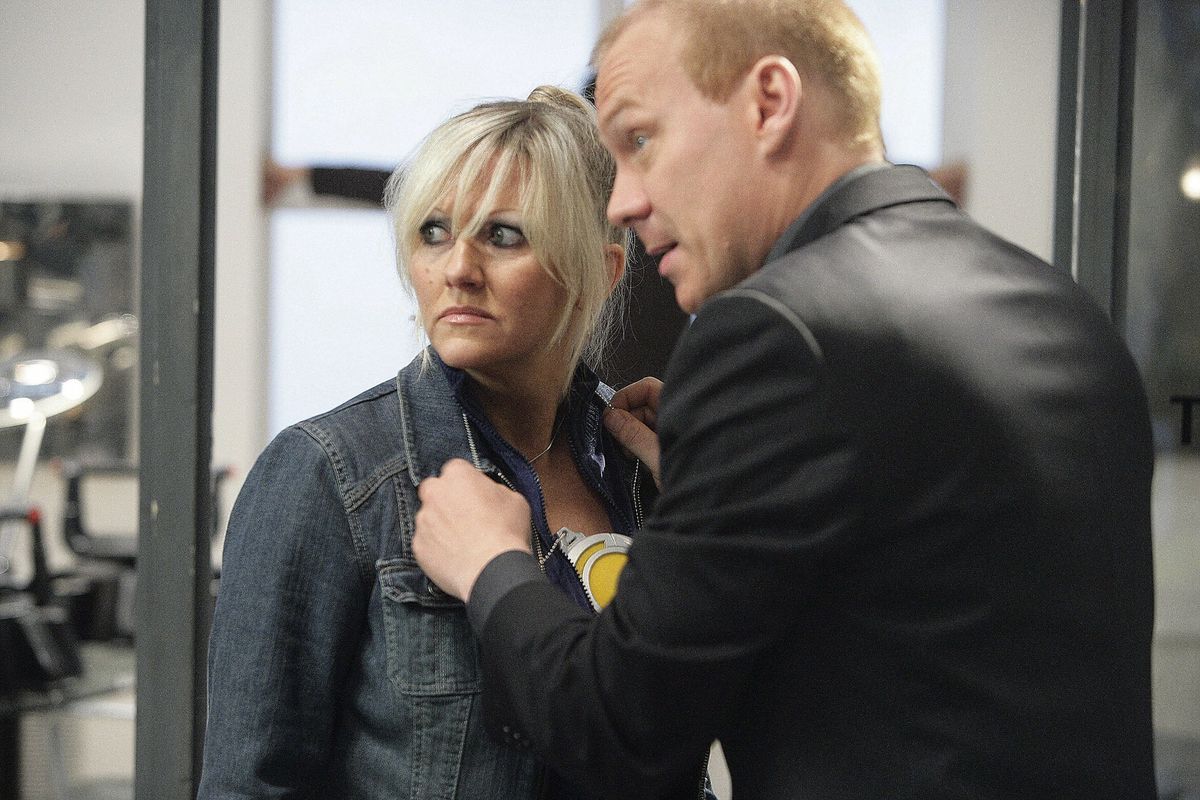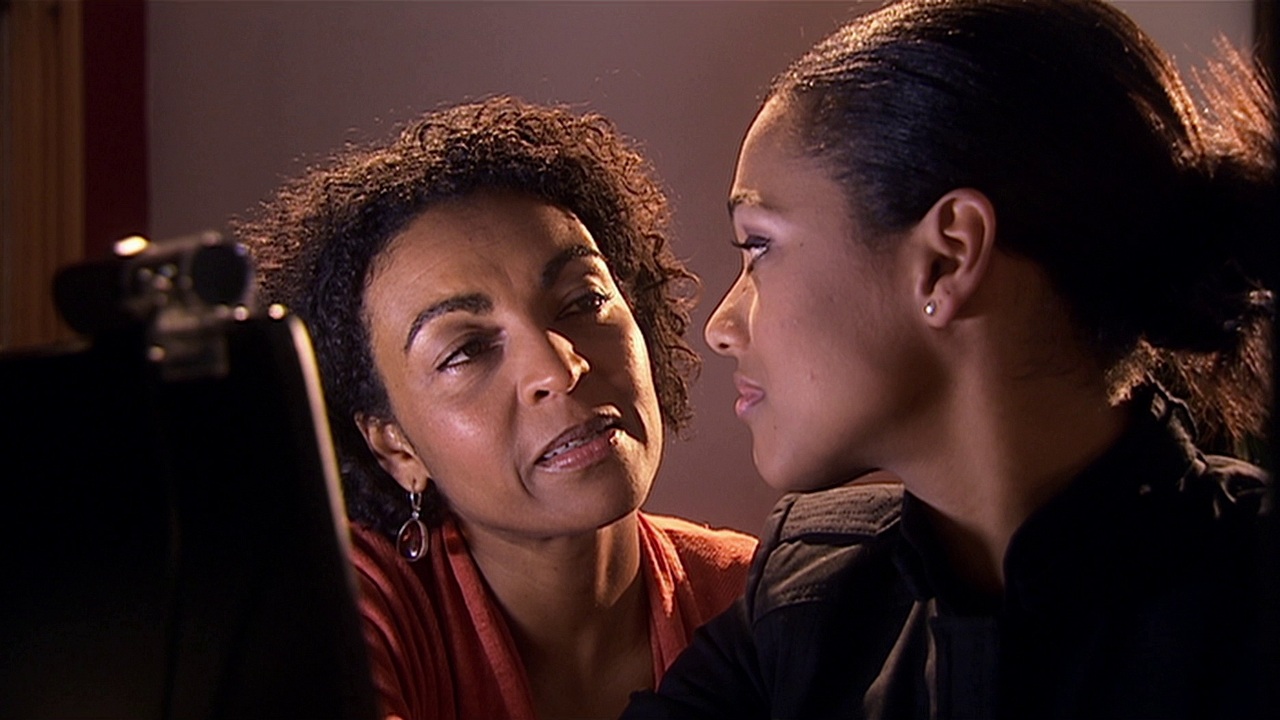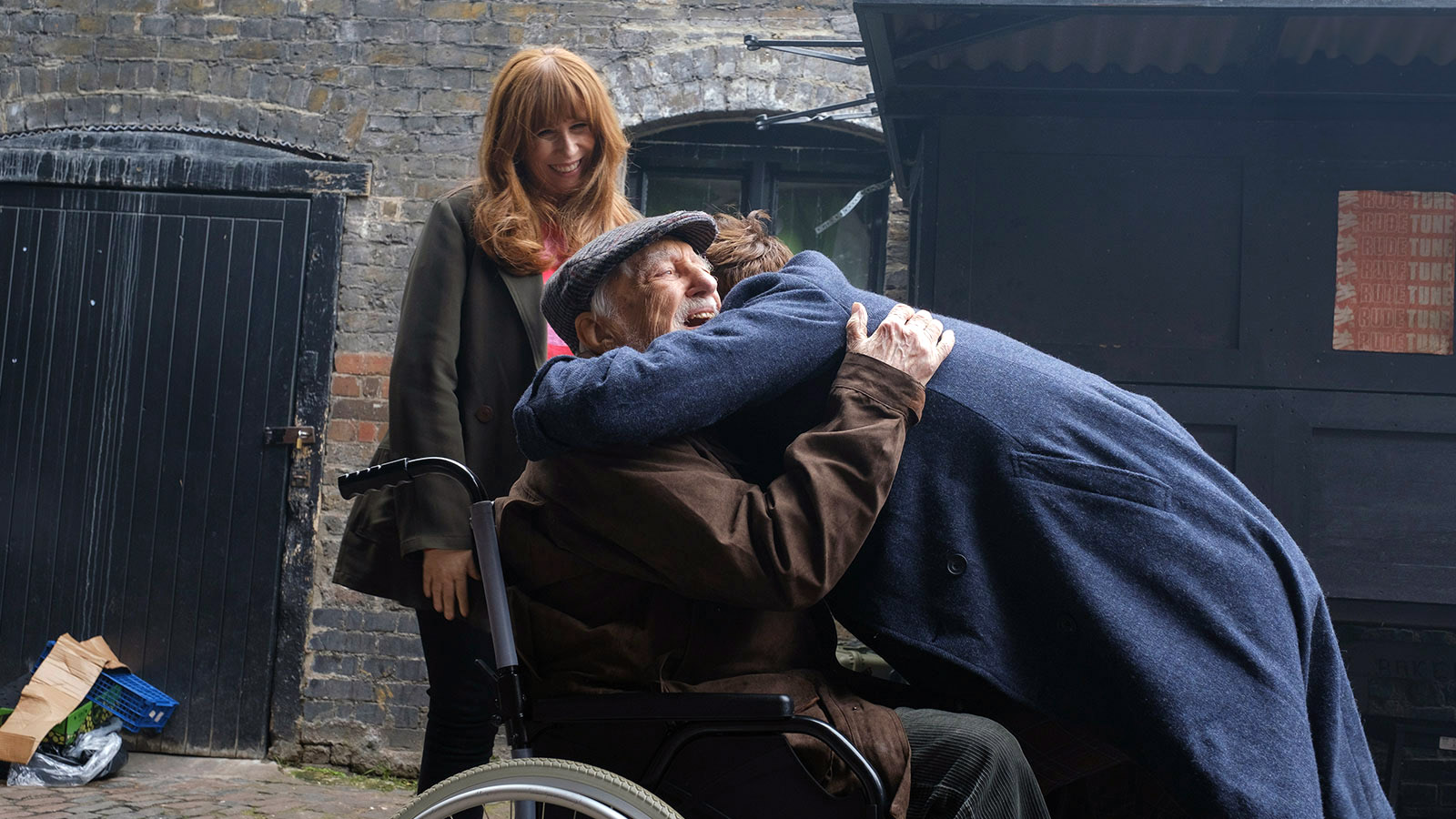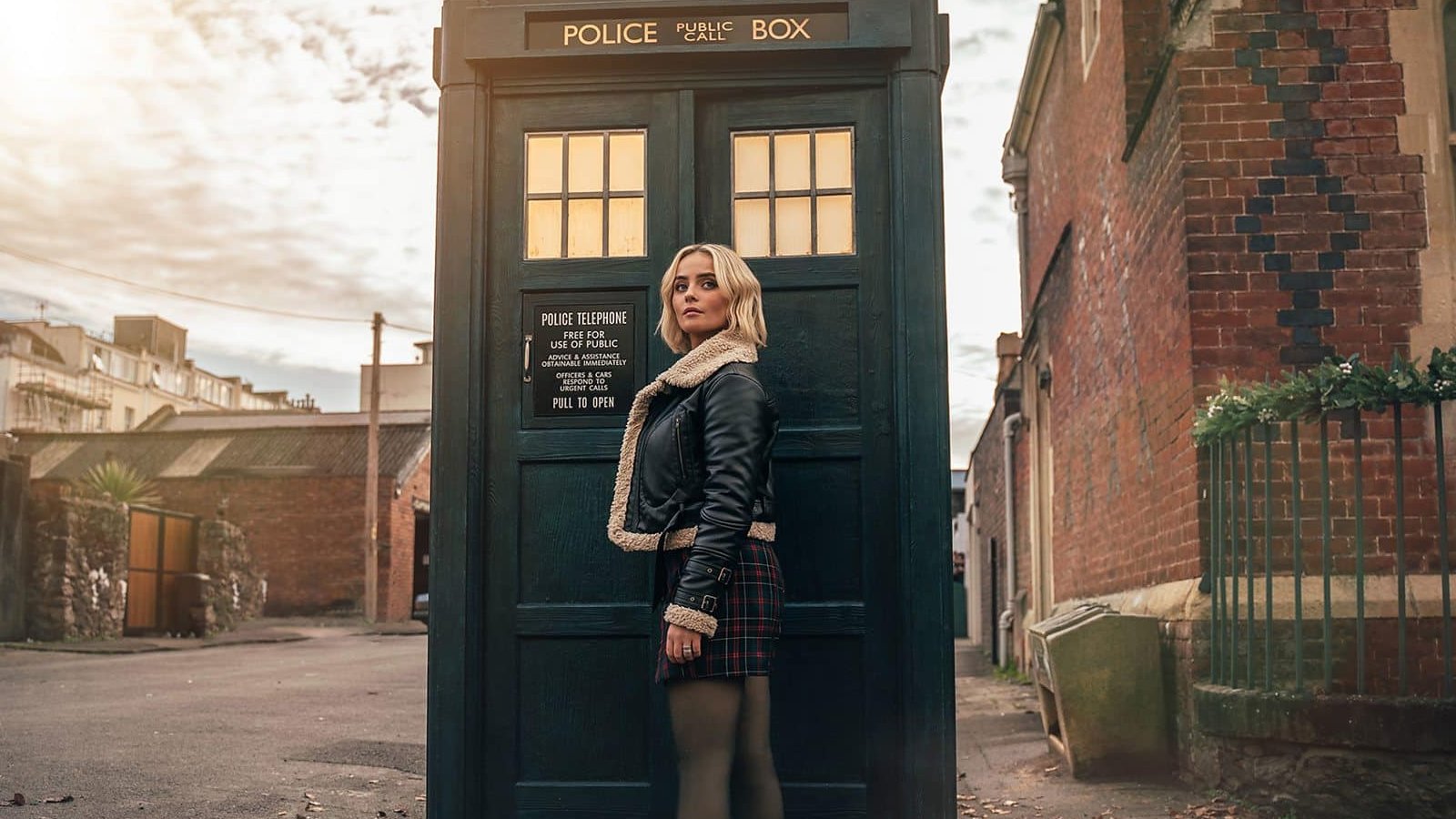‘Doctor Who’ Regains Its Best Asset With “The Church on Ruby Road”
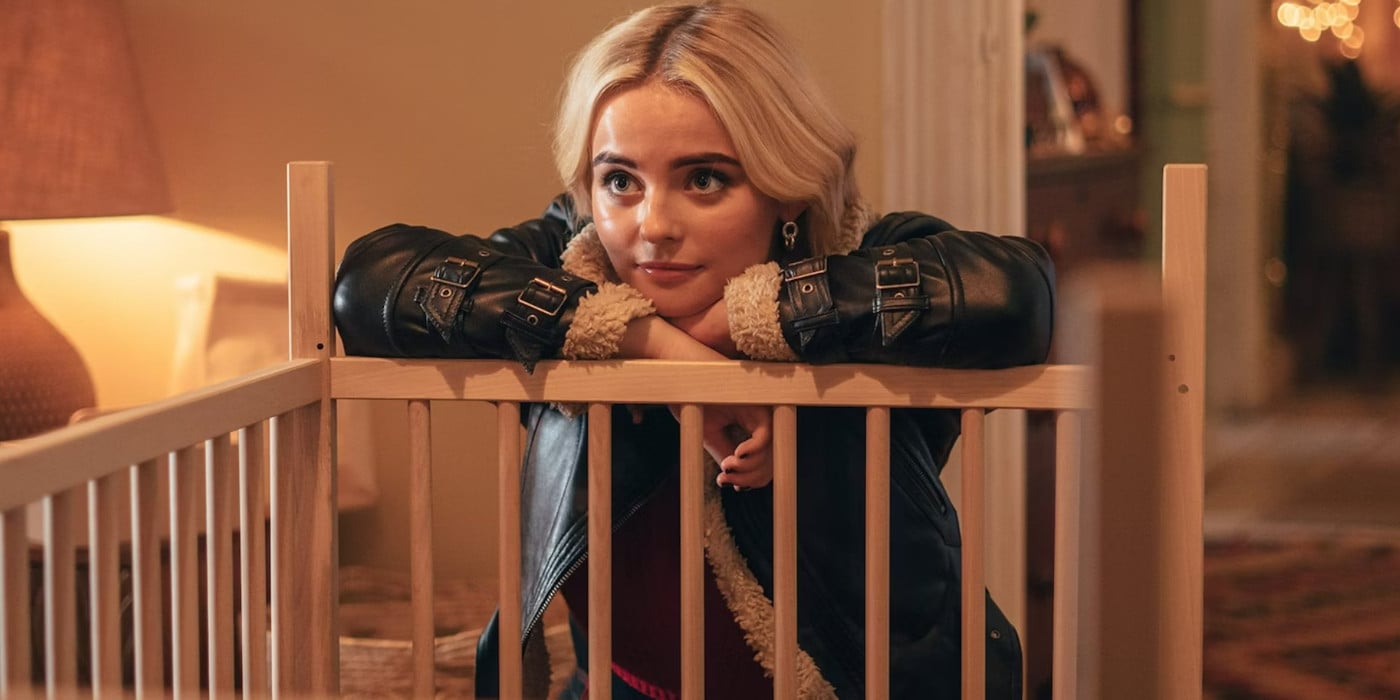
Doctor Who is back to season one for the third time. The show is new and fresh but the best part of the previous run is back in full force.
Russell T Davies, Doctor Who‘s showrunner from 2005-2009 is back. Each creator on the series, both classic and modern, has their strengths. Davies has an incredible gift for humor and for setting up titillating season-long arcs. No one builds a universe (or Whoniverse, if you prefer) better than Davies. And that’s largely down to one word: family.
Whether it’s a family born or a family made, the reason the main characters from the Davies are so relatable and human is due to their tight-knit connections. Even the Doctor, frequently the loneliest being in the universe, has moments where they are surrounded by their chosen family. And it absolutely defines both the Doctor and the series in enormously rewarding emotional ways.
For “The Church on Ruby Road,” the first Doctor Who Christmas special since 2017, the focus is on the family of Ruby Sunday, the Doctor’s latest companion. And it’s the ways, both familiar and new, that Ruby’s family life plays out that ground this new era in realism, even as fantastical goblins soar overhead.
So let’s look at Russell T Davies’s focus on family from stories past and see how the Sunday clan adds to that legacy.
Doctor Who and the Tylers
In many ways, Rose Tyler is the foundation upon which the entirety of modern Doctor Who is built. Rose works in a shop, lives in an estate, and coasts through life with her boyfriend Mickey. We know Rose is capable of more. She fights aliens, finds empathy for a Dalek, and she becomes the Bad Wolf. The Doctor inspires Rose to reach for more, but the root of what makes that possible is her parents, Jackie and Pete.
Peter Alan Tyler is more myth than man to Rose because he dies when she is a baby. But what Rose knows about Pete is essential. He has an adventurer’s spirit and throws every idea at the wall to provide for his family. While Rose’s trip to visit her father in the past reveals a far messier reality, Pete is still all those things. And he sacrifices himself to save Rose, to save the world. Something Rose echoes later.
It’s easy to mistake Jackie Tyler’s sharp words for heartlessness, but the opposite is true—she’s all heart. She pushes Rose towards the everyday, but that’s only because she watches her husband die from being too adventurous. And when she rages at the Doctor, it’s because she fears for Rose’s safety. And yet, despite that, Jackie invites people into her life. She even patches the 10th Doctor up with a cup of tea.
It’s Jackie’s pragmatism and her heart that makes Rose able to see what the Doctor can’t. And it isn’t just that Jackie and Pete inspire Rose, they also tell the story of what it means to be a struggling Londoner, wanting more for your kids, but being afraid of what might be, too. They are as much the foundation for modern Doctor Who as Rose.
Keeping Up With the Jones’s
Imagine you are the mother to three beautiful children. One daughter, Tish, works for the Prime Minister. The other daughter, Martha, is a doctor. Your son Leo is also there. But your ex-husband is dating a skinny, white lady half his age who spends all your family’s money on shopping. And then Martha falls in love with a skinny, white dude who courts danger and doesn’t care about her.
You are Francine Jones. Congratulations. I’m sorry.
Jack tells Martha not to inherently trust the Doctor—and she’s right to! Sure, the Doctor saves the day regularly but he’s willfully blind to what a Black woman traveling in time might have to deal with because he’s too busy mourning Rose.
Intentional or not, Doctor Who series three goes surprisingly on systemic racism. The Doctor is unwilling to see that short-changing Martha has an inherently racial component. The Master is literally called “the Master” and enslaves a Black family for fun. And in the middle of it all is Francine Jones who sees it all. And it’s not until Martha watches her family be enslaved by a man the Doctor is desperate to forgive that she sees it, too.
Francine swallows the Master’s cruelty for the greater good while Martha spreads the good word of the Doctor for the same reason. Martha learns from Francine not just when to fight back, but how to do it. There’s no Martha without Francine. And there’s no planet Earth either. Family literally saves the world.
A Very Noble Family
Jackie Tyler and Francine Jones both protect their children in part because they see their value. Sylvia Noble is the first mother of the Davies era who doesn’t show she values her daughter. And as a result, Donna Noble doesn’t even travel with the Doctor at first—because she thinks she isn’t worth it.
That’s when Wilfred Mott steps up. Wilf knows war and he knows the regrets of both action and inaction. Donna regrets the inaction of not joining the Doctor. And Wilf, without even knowing why, invites Donna to believe there’s always another chance. It’s Wilf’s optimism that burns away some of Donna’s cynicism.
But Donna’s cynicism, the one she learns from Sylvia, is still internal. She’ll fight to the last to save a life, just never her own. She saves all of creation and loses her memory in the bargain. And that’s when Sylvia gets it. That’s when she realizes she either loves and protects her daughter or she loses her.
Fifteen years later, Sylvia learns to be a better mother. Donna, even with her memories gone, learns she can still save others, only now the cost is her comfort instead of her life.
And when the Doctor comes back, it’s a version who knows he was abandoned, that the only mother he knew abused him. That Doctor needs to learn something from the Nobles—that you properly can’t love anyone else if you don’t love yourself first. And none of that happens without the whole Noble clan.
Doctor Who When Every Day is Like Sunday
Nearly 20 years from where we started, we finally arrive at “The Church on Ruby Road”. And Russell T Davies has found the perfect way of both continuing the family tradition while also adding to it. Ruby Sunday is a foundling, marking the first adopted companion. But what this also does is create an immediate symmetry between Ruby and the Doctor. Because, as we’ve only recently discovered, the Doctor is a foundling, too.
But while the mystery of both Ruby and the Doctor’s origins is intriguing, what makes Ruby great already is the family she does have—namely her mother Carla and her grandmother Cherry. We get the story of moving to London to support Cherry. And, just to say it, Angela Wynter as Cherry Sunday is everything. The very moment she’s on screen, you feel like you’ve known her your whole life.
Carla isn’t just a mom to Ruby, she’s also a foster mother to over 30 other children over the years. And as we see Ruby go to infinite lengths to save baby Lulubelle from literal sky goblins, we know where she got that dedication from—her mom.
And something that’s especially exciting is that we may even get to meet more of Ruby’s foster family as the next seasons of Doctor Who progress. There are so many new ways to explore family and understand Ruby better in this new era.
So, congratulations to Russell T Davies for bringing back the absolute best part of his writing on Doctor Who.

